Comrade Hoang Quoc Viet's birth name was Ha Ba Cang, born on May 28, 1905, in Dap Cau village, Do Xa commune, Vo Giang district, Bac Ninh province, now Dap Cau ward, Bac Ninh city, Bac Ninh province. As one of the founders of the Communist Party of Vietnam , he was an excellent student of President Ho Chi Minh, the leader of the Party and the working class, a steadfast communist soldier who fought all his life for the independence of the Fatherland, for the freedom and happiness of the people (1) . Through nearly 70 years of revolutionary activities, assigned many important responsibilities, Comrade Hoang Quoc Viet set a shining example of morality and revolutionary ideals, loyalty to the people and the country. He made many contributions to the cause of Party building, the struggle for power, the construction and protection of the Fatherland, especially to the process of building and implementing the guidelines of the 2nd Party Congress on developing revolutionary forces, innovating the work of the front and trade unions. These innovations are of great significance, contributing to promoting the building of the great national unity bloc, promoting international solidarity, and bringing the struggle for national liberation and national unification to final victory.
President Ho Chi Minh read the Political Report at the Second National Congress of the Party, February 1951_Photo: Document
Comrade Hoang Quoc Viet with the construction and direction of the implementation of the Party's 2nd Congress's guidelines on the National United Front and Front work.
After World War II, the national liberation movement developed strongly. Especially after the victory of the Chinese national democratic revolution in 1949, the Vietnamese people's resistance against French colonialism had many more advantages, receiving great support from socialist countries. In the country, revolutionary governments were established in many regions, with the urgent task of setting out guidelines and consolidating organizations to lead the resistance to victory. In that context, the Second National Congress of the Party took place from February 11 to 19, 1951, in Vinh Quang commune, Chiem Hoa district, Tuyen Quang province. The Congress decided to bring the Party into public operation, under the name of the Vietnam Workers' Party, setting out the guidelines for resistance and nation building to continue the struggle for independence.
The Second Congress of the Party had an important significance in the revolutionary process of our country. The Congress made key decisions to consolidate Party organizations and orient the resistance war against French colonialism, and at the same time proposed many policies and measures to strengthen and expand the great national unity bloc and the National United Front. Comrade Hoang Quoc Viet, Standing Member of the Party Central Committee, presented at the Congress a report on " Consolidating the great unity bloc for victory ". The report summarized the core issues on the construction, organization and operation of the National United Front, affirming the Party's viewpoint that the Front "is one of the pillars of the People's Democratic State, the boundless strength of the resistance war and nation building, the broad mass base that forms a solid armor of the Party" (2) ; At the same time, it is determined that the National United Front is a very broad front and is expanding every day, including all parties, advanced organizations of all classes of people, and unions that have voluntarily recognized the leadership of the working class and the Communist Party (3) .
Comrade Hoang Quoc Viet commented: politically, the Party leads the National United Front; organizationally, the Party is only a part of the front. Therefore, when all policies of the Party are proposed and approved by the entire front, the Party and the front must implement all those policies. He said that the Party's activities and standing in the front not only does not make the front fade away but also enhances the front's political role, making the national unity bloc strong and sustainable. The front's way of doing things like this does not discredit the Party, but enhances the Party's leadership role, helping the vanguard class always stay close to the masses (4) . On the other hand, the report also emphasized: “While forming alliances with other parties, the Party never merges into that alliance, obliterating its own organization... Experience from other countries has shown us that where the communist party is weak, it is difficult to build a united front; but in countries with strong communist parties, the anti-imperialist class alliance can be successfully implemented” (5) .
Comrade Hoang Quoc Viet's report systematically and comprehensively presented the current situation, causes, policies and measures to strengthen, consolidate and expand the National United Front; severely criticized erroneous and ambiguous viewpoints and perceptions about policies and front organization work (6) . The report affirmed: The issue of the front, the issue of finding allies for the working class is a strategic revolutionary issue of the Party; the front is a topical issue, front work must be considered an urgent issue (7) .
The report presented theoretical and practical issues of building the great national unity bloc, from which a specific plan was proposed to rectify the organization and work of the front in the decisive stage of the revolution. This was the basis for mobilizing patriotic and progressive forces to unite against the invaders, gain national independence, build a people's democratic regime, and move towards building socialism under the leadership of the Party.
At the 2nd Congress, comrade Hoang Quoc Viet was elected to the Party Central Committee and became a member of the Politburo. He was assigned to be in charge of mass mobilization work, as Head of the Party Front Committee, concurrently in charge of the Labor and Youth Movement sub-committees, member of the Organizing Committee, and member of the Laos and Cambodia Committee.
In order to implement the Resolution of the 2nd Party Congress on the work of the front, from March 3 to 7, 1951, the National Congress to unify the Viet Minh - Lien Viet Association was held, aiming to unify the two organizations of the Viet Minh Front - Lien Viet Association into the Vietnam National United Front (abbreviated as the Lien Viet Front). The Lien Viet Front was born to create a larger front, gathering patriotic people of all classes, parties, religions and ethnicities, strengthening the strength of national unity, and gaining the support of the people of the world for Vietnam's struggle for independence. At the Congress, President Ho Chi Minh affirmed, "Seeing that great solidarity forest has blossomed, borne fruit and its roots are deeply rooted and spreading throughout the entire people, and it has an "everlasting" future. Therefore, I am extremely happy" (8) .
After the Geneva Agreement on the cessation of war and restoration of peace in Indochina signed on July 20, 1954, on October 25, 1954, comrade Hoang Quoc Viet attended a Politburo meeting in Hanoi, chaired by President Ho Chi Minh. The meeting discussed the Party's tasks in the new situation and assigned tasks to Politburo members. As the person in charge of mass mobilization, front and trade union work, comrade Hoang Quoc Viet was assigned to direct the preparation for the Lien Viet Front Congress. Accordingly, from January 7 to 11, 1955, the National Lien Viet Front Conference was held in Hanoi, chaired by comrade Hoang Quoc Viet. The conference summarized the front's work over 9 years of resistance against French colonialism and American intervention, and outlined major principles in the organization and operation of the National United Front. The conference affirmed that there needs to be a new organizational form of the National United Front to suit the tasks of the revolution in the new period.
After a period of preparation, from September 5 to 10, 1955, the Lien Viet Front Congress met in Hanoi, agreeing to establish the Vietnam Fatherland Front, continuing the historical mission of the Lien Viet Front in the new period. The Congress approved the 10-point Platform and the Charter of the Vietnam Fatherland Front; Comrade Hoang Quoc Viet was elected as a member of the Presidium of the Central Committee of the Vietnam Fatherland Front.
Chairman of the National Assembly Standing Committee Truong Chinh, Deputy Prime Minister Le Thanh Nghi, Chairman of the Vietnam General Confederation of Labor Hoang Quoc Viet with female heroes at the 4th Congress of Heroes and Emulation Fighters (1966)_Photo: VNA
The birth of the Vietnam Fatherland Front was an important political event, a great victory of the Party and the people of the whole country under the leadership of the Party Central Committee and President Ho Chi Minh. The Front became a public flag of solidarity, gathering the great national solidarity bloc and gaining the sympathy and support of the people of the world for the just cause of the Vietnamese people. The birth of the Front was also closely linked to the role, activities and contributions of comrade Hoang Quoc Viet, Politburo member in charge of mass mobilization and front work of the Party (9) .
It can be said that after the 2nd Congress of the Party, in the face of new developments in the revolutionary situation, under the leadership of comrade Hoang Quoc Viet, the National United Front has had many more solid and widespread bases, acting as the core in mass movements and campaigns to build and perfect the people's government system throughout the country as well as patriotic emulation movements... (10) . He not only advised and proposed to the Party Central Committee, directly participated in building major policies and guidelines on the National United Front and front work, but was also the one who directed the implementation of those policies and guidelines with a high sense of responsibility and enthusiasm of an experienced leader. The Party's correct front policy and the practical experience of comrade Hoang Quoc Viet actively contributed to building the great national unity bloc in the National United Front, promoting the patriotic tradition of our people, creating the strength to bring the resistance war against French colonialism to victory in a short time after the 2nd Party Congress.
Comrade Hoang Quoc Viet's dedication and contribution to the national liberation revolution was ranked among the revolutionary leaders, especially in mass mobilization and front activities, which were recognized by the Party and the people. In Circular No. 26I/TW, dated May 18, 1951 and Circular No. 115I/TW, dated September 14, 1954 of the Party Central Committee, regulations were issued on the hanging of flags and photos of revolutionary leaders, including the photo of comrade Hoang Quoc Viet (11) .
Comrade Hoang Quoc Viet with the workers' movement and trade union work following the Party's 2nd Congress guidelines
At the Second Congress, the Party identified the important role of trade unions in organizing, educating, and mobilizing workers and labor forces to participate in the resistance war and national construction. Trade unions are considered an important organization that helps gather the strength of the working class, contributing to the revolutionary cause and economic development. The Congress emphasized: It is necessary to develop trade union organizations in accordance with the new situation, to protect the rights of workers and promote production. In the report " Strengthening the great solidarity bloc for victory ", comrade Hoang Quoc Viet stated: The trade union is a key organization, a grassroots force of the National United Front and must promote the role of trade unions in the front (12) .
After the Second Congress, the Party went into public operation, leading the army and people into a period of general counter-offensive. As President of the Vietnam General Confederation of Labor, Comrade Hoang Quoc Viet regularly went to factories and enterprises to inspect and urge union cadres to actively participate in enterprise management, directly encouraging workers to promote production emulation, making many products to serve the resistance. He wrote letters to laborers in temporarily occupied areas, calling for close solidarity, regardless of North - South, religion, occupation, unified action in every office, plantation, mine, standing up against conscription, oppression, wage reduction, wage cuts, layoffs, dismissals, against American imperialism's intervention in Indochina, prolonging the war. He made many visits and inspections of places where weapons and equipment were produced and repaired for combat purposes, thereby discovering many problems to promptly rectify and remind them to increase vigilance and discipline in production and work organization (13) .
On the occasion of the anniversary of the founding of the Vietnam General Confederation of Labor (July 20, 1954), comrade Hoang Quoc Viet made an important speech: " The Vietnam General Confederation of Labor must be a strong political force in the patriotic struggle of the entire people ". The speech affirmed the role and position of the working class and trade union organizations in the great revolutionary cause of our people. On behalf of the Vietnam General Confederation of Labor, he called for: "As a strong political force in the patriotic struggle of the entire people to gain peace, independence, unity and democracy, the Vietnam General Confederation attaches great importance to working behind the enemy's back. We must take advantage of the enemy's confusion to unite the broad working classes, stand up against the enemy's conscription, against oppression and exploitation, and support our delegates at the Geneva Conference and the Ho Chi Minh Resistance Government" (14) .
Since the 2nd Party Congress, under the leadership of the Party Central Committee and President Ho Chi Minh, and the direct guidance of the President of the Vietnam General Confederation of Labor Hoang Quoc Viet, the Northern workers and trade union organizations have played a great role in taking over cities, towns, industrial zones, especially in protecting production facilities, factories, and enterprises as well as suppressing reactionary saboteurs. This is the basis and premise for the country's economic recovery and development in the following years. Trade unions at all levels have actively mobilized workers and civil servants in factories and enterprises to participate in socialist transformation, improve enterprise management, help the working class mature in political ideology and train revolutionary mettle, raise socialist awareness and understanding of their role and responsibility as masters.
Comrade Hoang Quoc Viet devoted much effort and intelligence to the workers' movement and trade union work, encouraging workers and laborers to enthusiastically participate in the resistance war, national construction, and carry out the goals and tasks set forth by the Second Party Congress. He was honored as "the eldest brother of the trade union" (15) .
Comrade Hoang Quoc Viet with the task of international solidarity and foreign affairs serving the resistance war and national construction following the guidelines of the 2nd Party Congress.
The political report at the Second Congress of the Party stated: “The Vietnamese resistance is an integral part of the great struggle of the people of the world against the imperialists who wage war and protect peace for humanity. Despite many difficulties and obstacles, the Vietnamese people are determined to fulfill their international obligations” (16) . Particularly for the revolution of the three Indochinese countries, the Report “ Strengthening the solidarity bloc for victory ” presented by comrade Hoang Quoc Viet at the Congress proposed the policy: Establishing a resistance alliance of the three nations, building the Vietnam - Cambodia - Laos United Front. This is one of the important decisions of the Congress to gather resistance forces, fight against the enemy's divisive plot and create favorable conditions for comprehensive cooperation between the three Indochinese countries in the struggle against imperialism, contributing to the cause of protecting democracy and world peace.
Delegation of the Supreme People's Procuracy and Bac Ninh Provincial Party Committee offered incense at the Monument of Comrade Hoang Quoc Viet_Photo: kiemsat.vn
On March 11, 1951, the Vietnam - Cambodia - Laos United Front was established, contributing to the defeat of the "divide and rule" plot and trick of the French colonialists and American interventionists, and strengthening the solidarity among the three peoples on the Indochina peninsula. The Vietnam - Cambodia - Laos People's Alliance Committee was established with the participation of typical leaders such as Pham Van Dong, Hoang Quoc Viet, Hoang Minh Giam (Vietnam); Souphanouvong, Nuhac Phunxavan (Laos); Son Ngoc Minh, Tuxamut (Cambodia). This was an important step in consolidating the solidarity among the three Indochinese peoples in the struggle for independence. In particular, comrade Hoang Quoc Viet played an important role in building and consolidating the Vietnam - Cambodia - Laos United Front. As an experienced leader, he participated in negotiations and exchanges with Lao and Cambodian revolutionary leaders, contributing to building a common revolutionary strategy, promoting the spirit of solidarity in fighting among the three countries, and laying a solid foundation for a long-term, comprehensive alliance and solidarity in fighting among the three peoples in the following stages.
In addition, implementing the spirit of international solidarity according to the guidelines of the 2nd Party Congress, as a member of the Party Central Committee, member of the Politburo, President of the Vietnam Fatherland Front, President of the Vietnam General Confederation of Labor, comrade Hoang Quoc Viet had many active foreign affairs activities, making an important contribution to mobilizing support in weapons, finance and training of cadres from friendly countries, helping Vietnam strengthen its forces in the resistance war against French colonialism.
Immediately after the 2nd Party Congress, from July to December 1951, implementing the directive of President Ho Chi Minh, comrade Hoang Quoc Viet was appointed as Head of the Vietnamese delegation to visit China and North Korea, aiming to encourage the cause of building and defending the Fatherland of our friends, consolidate and tighten the relationship between the three countries, exchange and learn from each other, contributing to promoting the anti-imperialist movement in Asia. This trip led by comrade Hoang Quoc Viet further strengthened the friendship, solidarity, support and mutual assistance between the three countries with the same goals, ideals, and common trenches of Vietnam - China - North Korea. The visit truly became a trip to exchange experiences, learn from each other, and gain the support and assistance that our friends gave us (17) .
Comrade Hoang Quoc Viet participated in many international conferences, especially those of the World Federation of Trade Unions, to gain support from the international workers' movement for Vietnam's struggle. In November 1951, Comrade Hoang Quoc Viet attended the World Federation of Trade Unions Congress held in Beijing (China). From the Congress forum, he delivered a speech condemning the increasing intervention of American imperialism in Vietnam. The speech made international friends support the just cause of our people, condemning the acts of aggression by French colonialists and American imperialists.
Comrade Hoang Quoc Viet's contributions to foreign affairs have helped raise Vietnam's position, gain international support, and create favorable conditions for the cause of national liberation, national unification, and the whole country moving towards socialism.
In the revolutionary history of our Party and nation, the Second National Congress of the Party is an important milestone marking the maturity of the Party in all aspects. The Congress summarized an important step in the theory and practice of the Vietnamese revolution, continued to supplement and develop the Party's first revolutionary platform, prepared all conditions to bring the revolution to complete victory, laid the foundation for completing the national liberation revolution and national construction. In particular, the contributions of comrade Hoang Quoc Viet at the Second National Congress of the Party helped consolidate the Party's strength and create a solid foundation for the revolutionary movement during the resistance war and national construction./.
-------------------------------
(1) See: Eulogy of the Central Executive Committee of the Communist Party of Vietnam at the Memorial Service for Comrade Hoang Quoc Viet, Newspaper People, December 31, 1992.
(2), (3) Complete Party Documents, National Political Publishing House, Hanoi, 2001, vol. 12, p. 186.
(4), (5), (6), (7) Complete Party Documents, op. cit., vol. 12, pp. 204, 211, 187, 215
(8) Ho Chi Minh: Complete Works, National Political Publishing House Truth, Hanoi, 2011, vol. 7, p. 47.
(9) See: Program to collect documents and write biographies of senior leaders of the Party and the Vietnamese revolution: Hoang Quoc Viet - Biography, National Political Publishing House, Hanoi, 2016, pp. 247 - 253.
(10) Associate Professor, Dr. Tran Minh Truong: "Comrade Hoang Quoc Viet - A model of a loyal and exemplary communist", printed in the proceedings of the Scientific Conference commemorating the 115th anniversary of the birth of Comrade Hoang Quoc Viet and the 60th anniversary of the founding of the People's Procuracy , National Political Publishing House Truth, Hanoi, 2020, pp. 57 - 65.
(11) See: Program for collecting and writing documents and biographies of senior leaders of the Party and the Vietnamese revolution: Hoang Quoc Viet - Biography, op. cit., p. 226.
(12) Complete Party Documents, op. cit., vol. 12, p. 202
(13), (14) See: Program to collect and write documents and biographies of senior leaders of the Party and the Vietnamese revolution: Hoang Quoc Viet - Biography, op. cit., pp. 244, 245
(15) See: Dr. Dinh Ngoc Quy: "Comrade Hoang Quoc Viet - A typical senior leader of the Party and the Vietnamese revolution", printed in the proceedings of the Scientific Conference commemorating the 115th anniversary of the birth of Comrade Hoang Quoc Viet and the 60th anniversary of the founding of the People's Procuracy , op. cit., p. 70
(16) Complete Party Documents, op. cit., vol. 12, p. 153
(17) See: Program for collecting and writing documents and biographies of senior leaders of the Party and the Vietnamese revolution: Hoang Quoc Viet - Biography, op. cit., pp. 232 - 237.
Source: https://tapchicongsan.org.vn/web/guest/chinh-tri-xay-dung-dang/-/2018/1088302/nhung-dong-gop-cua-dong-chi-hoang-quoc-viet-voi-dai-hoi-dai-bieu-toan-quoc-lan-thu-ii-cua-dang.aspx


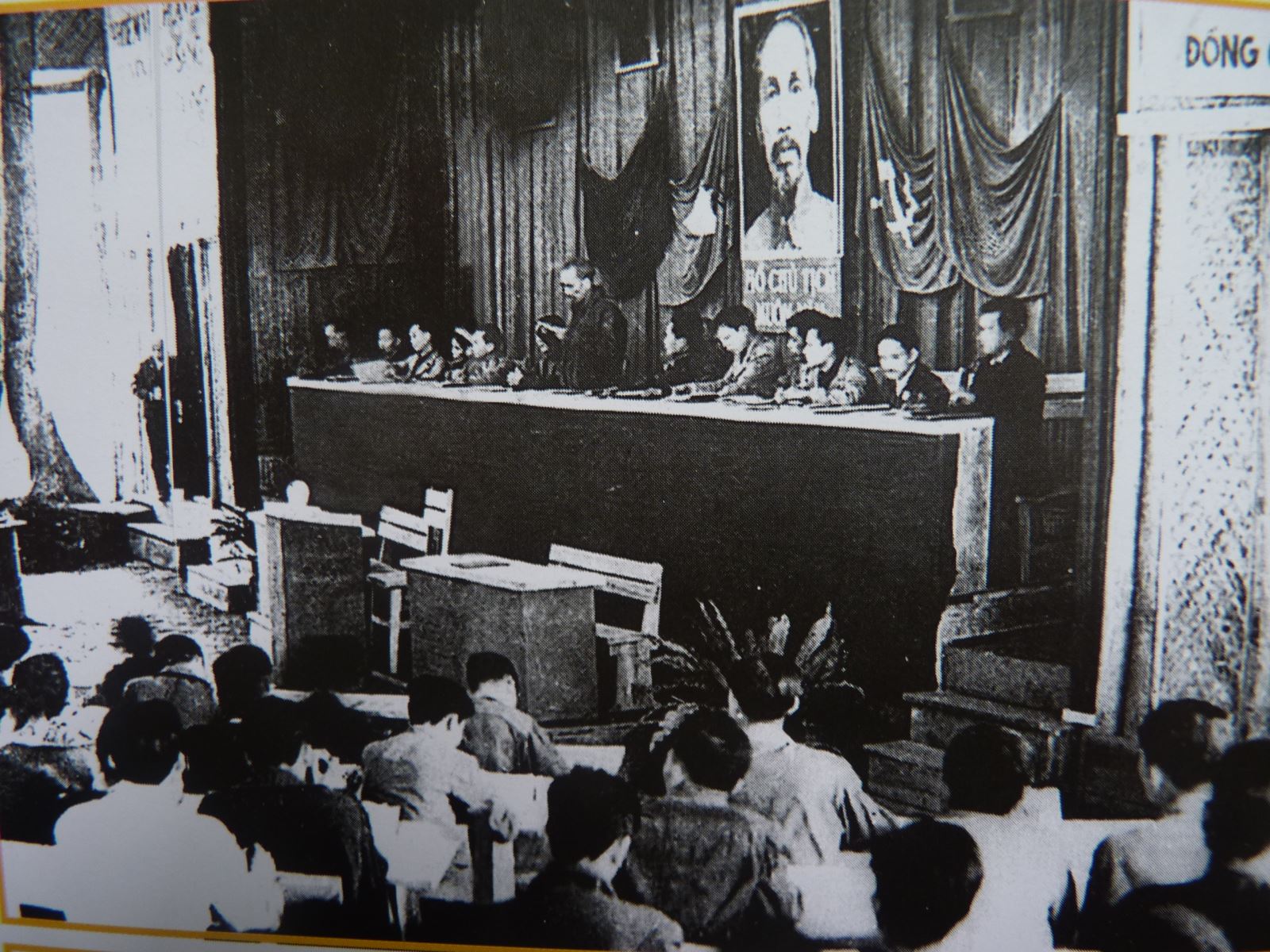
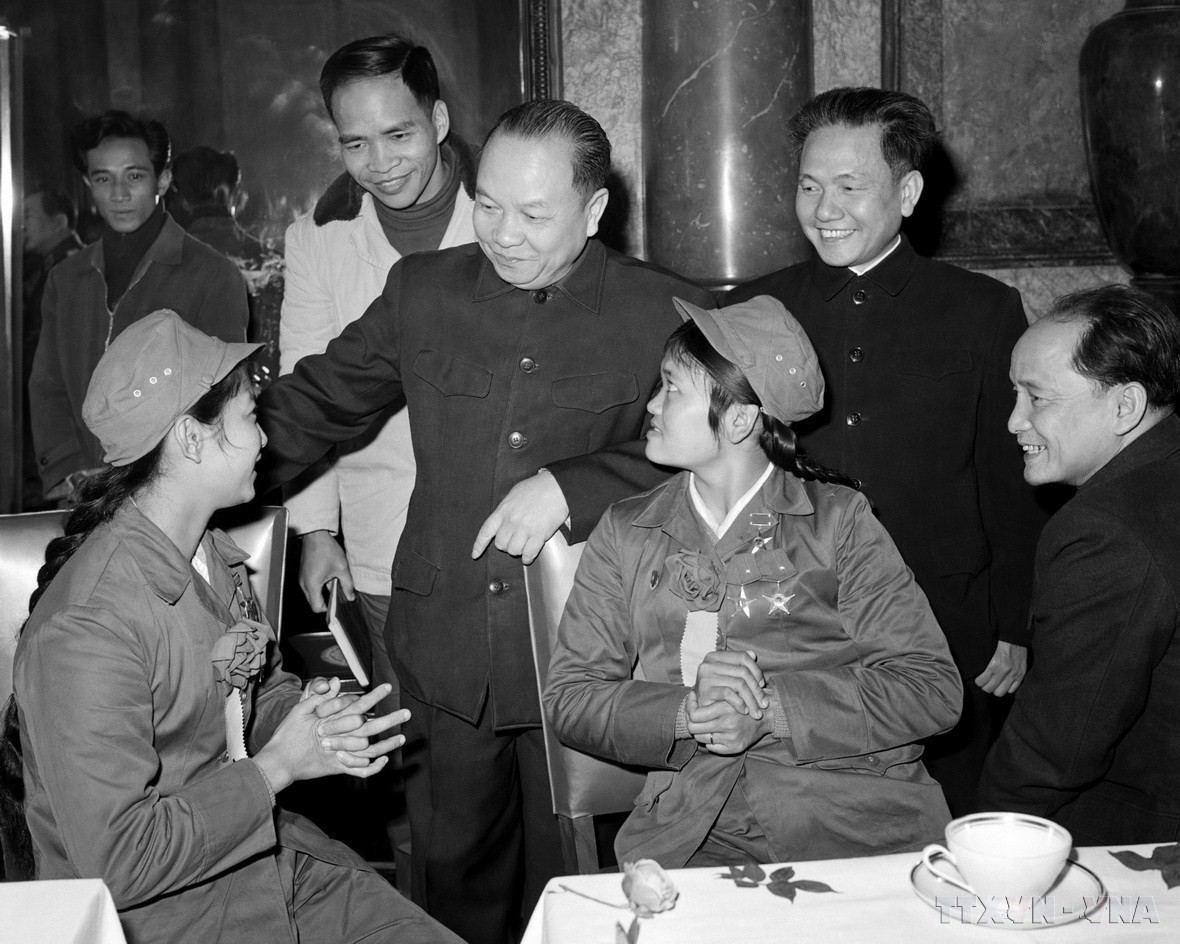
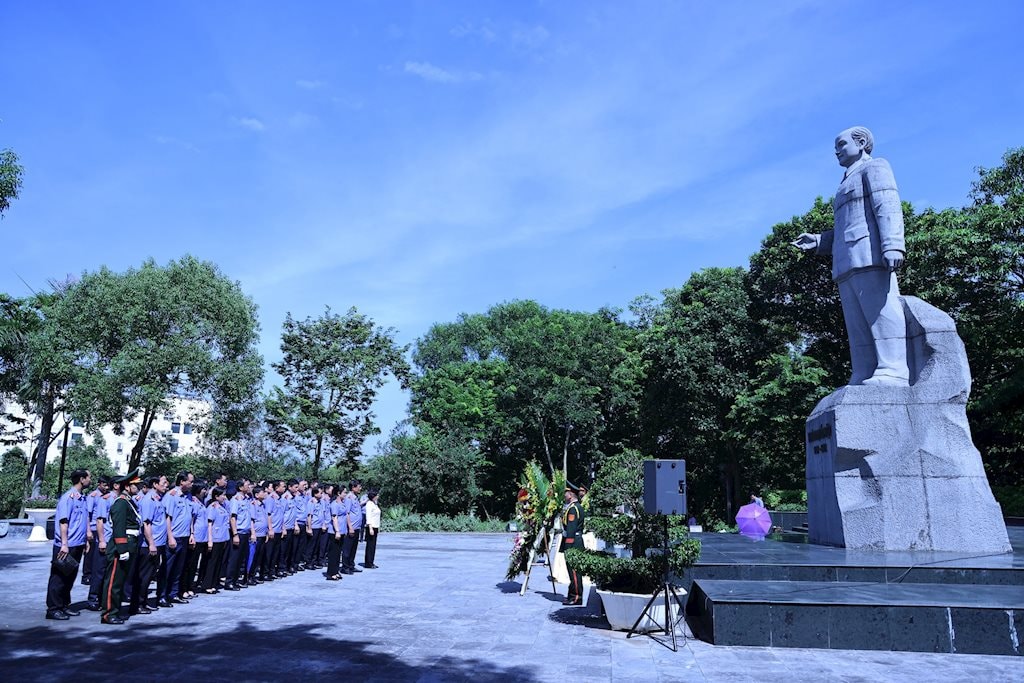
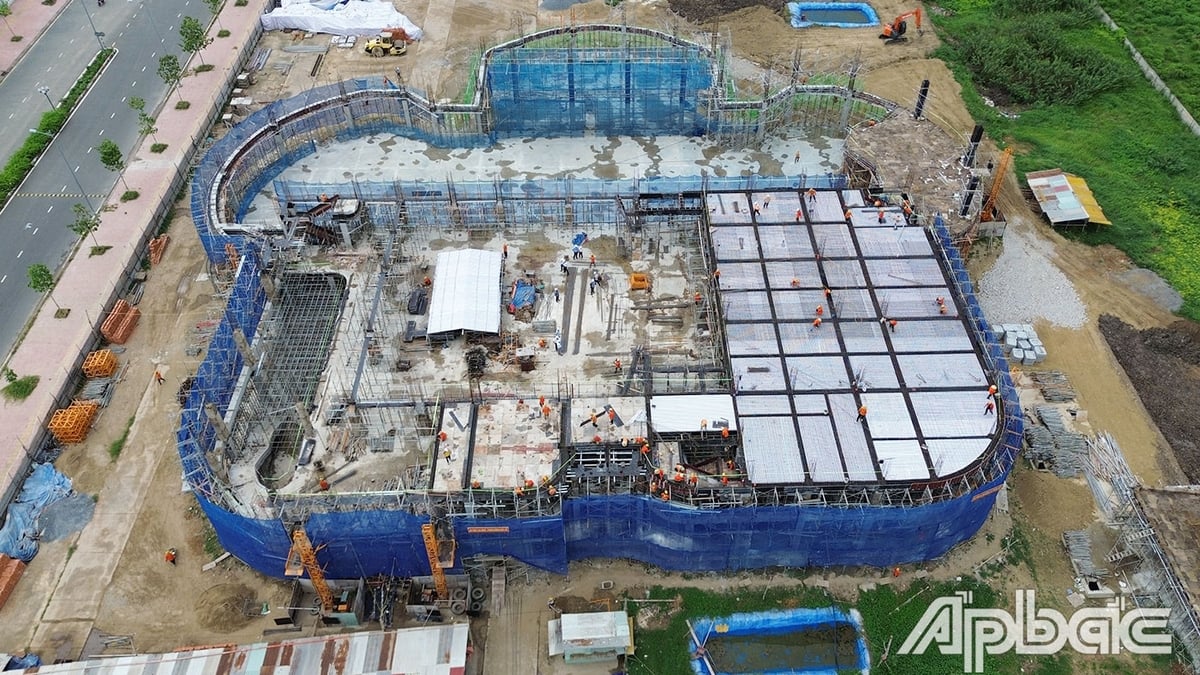
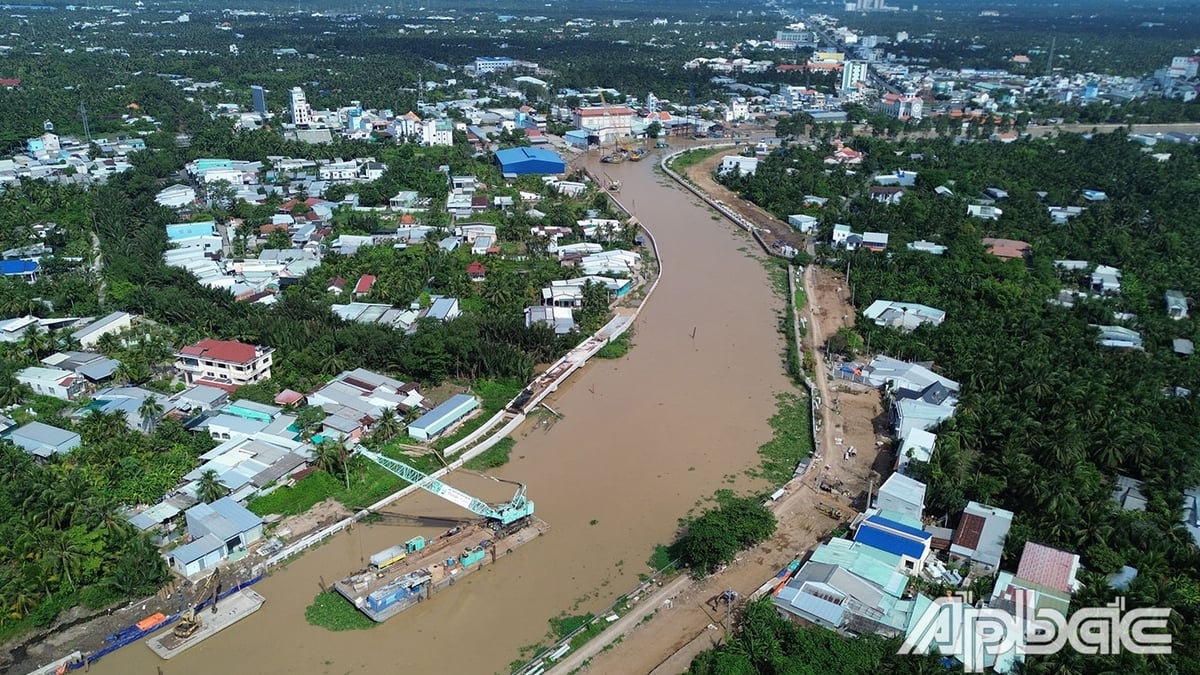
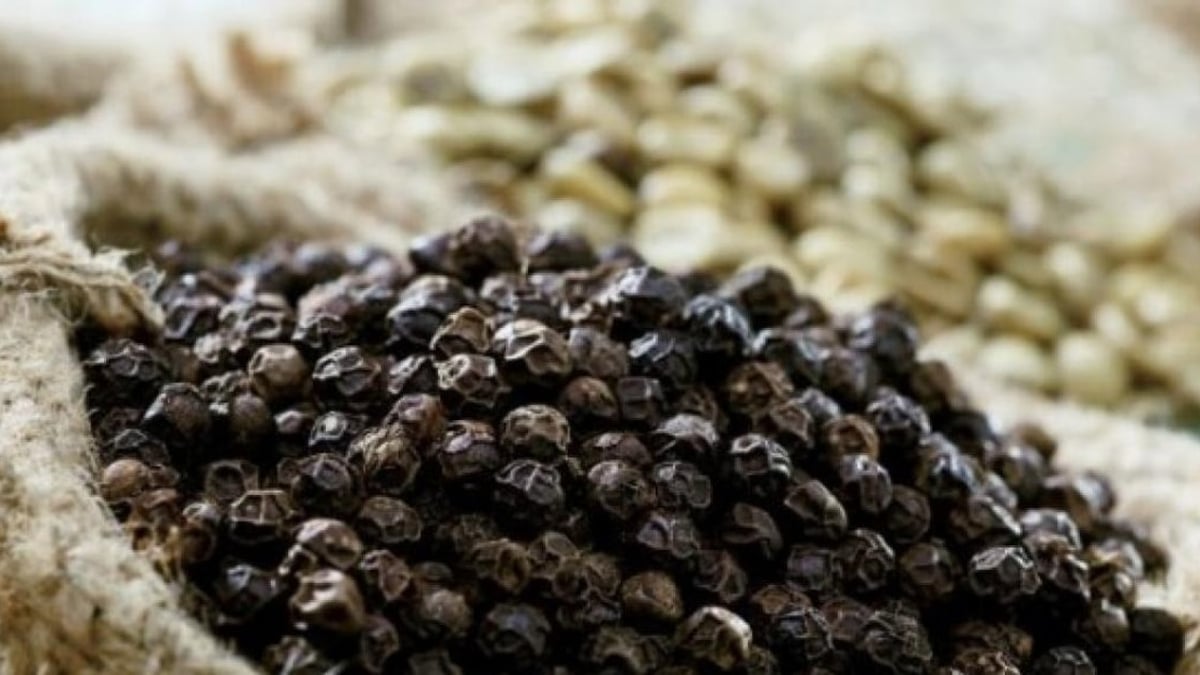
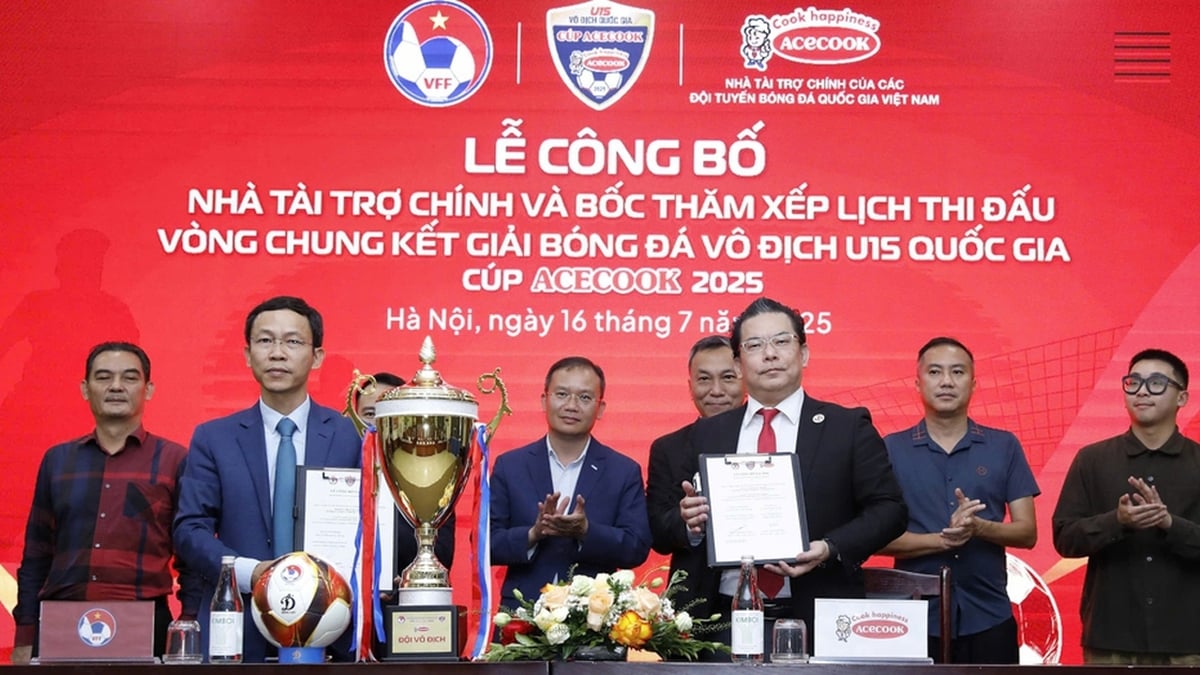

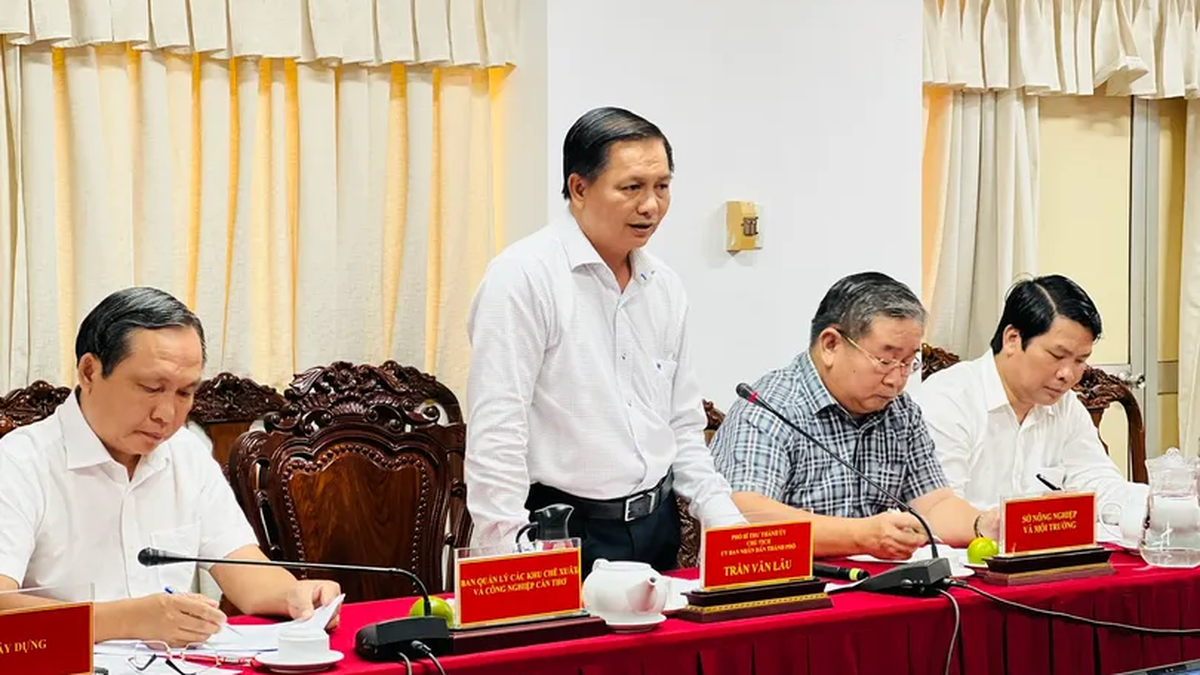
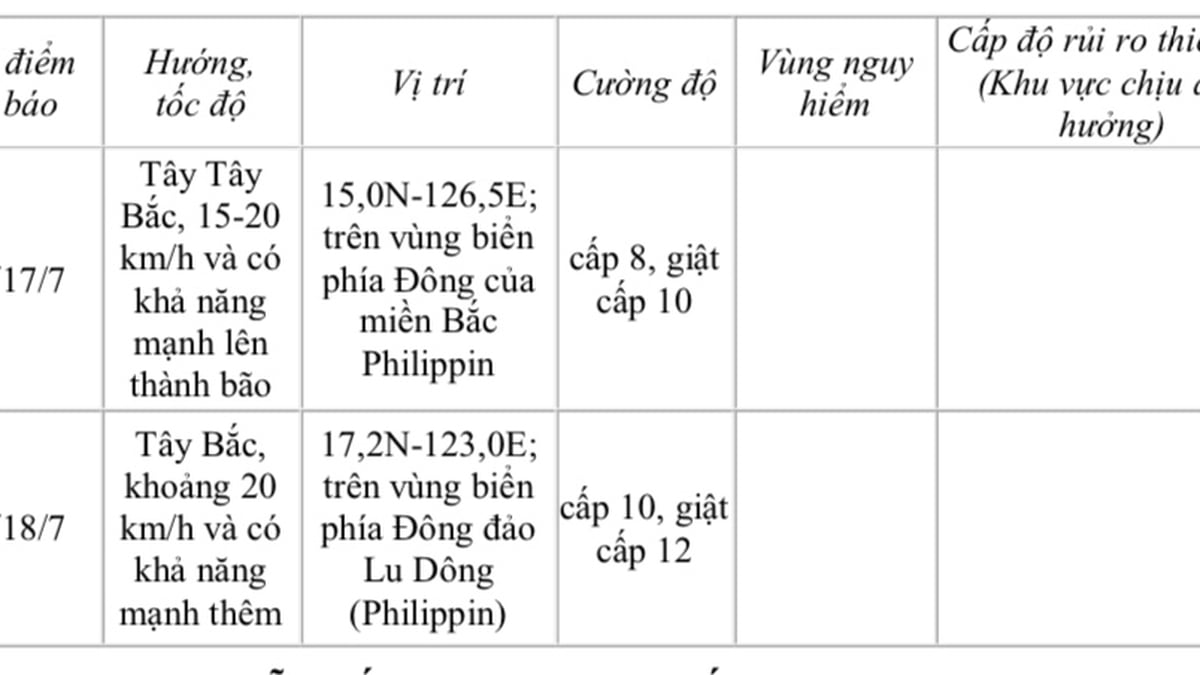
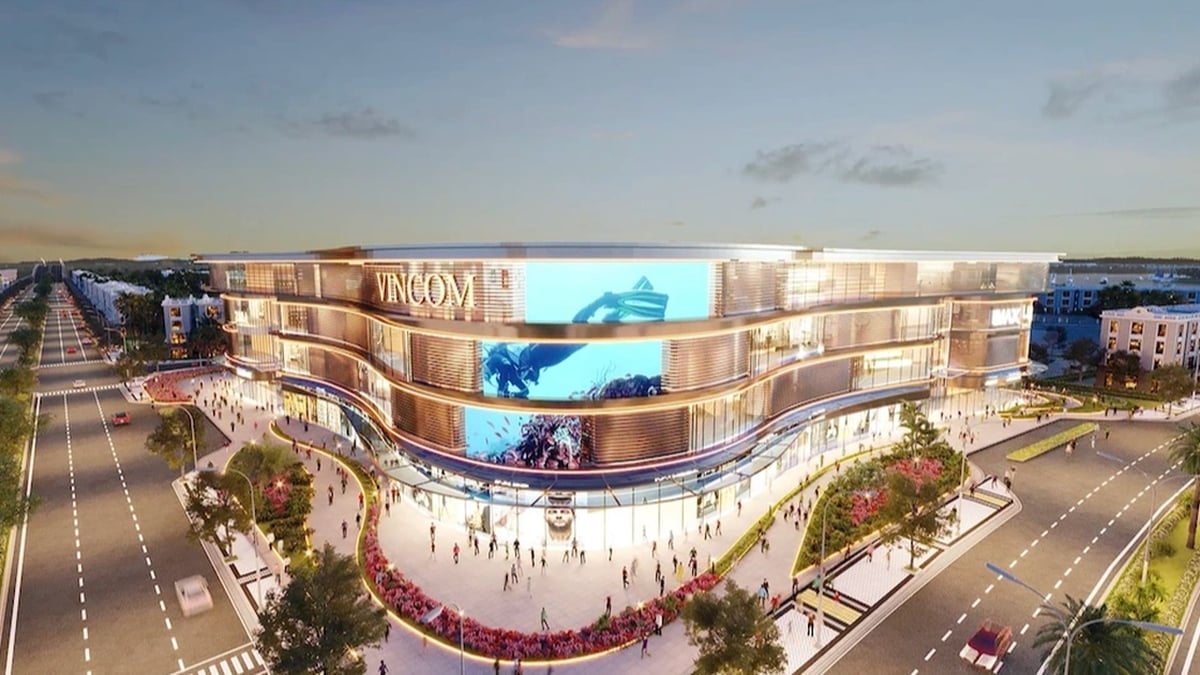
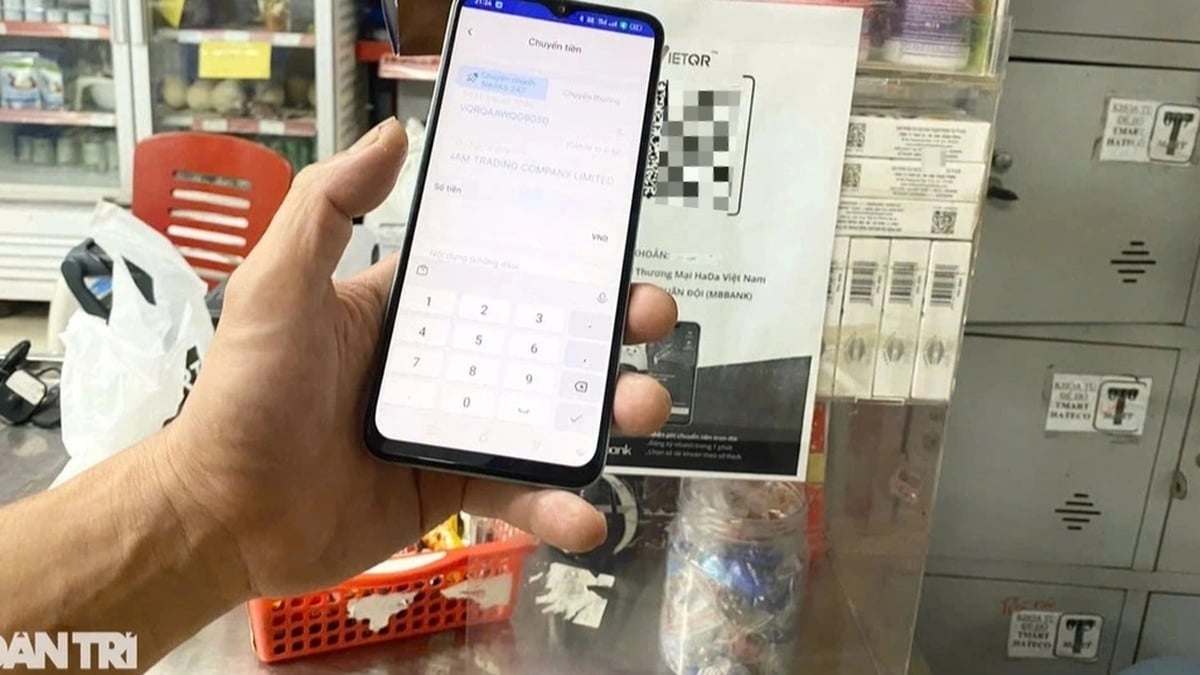
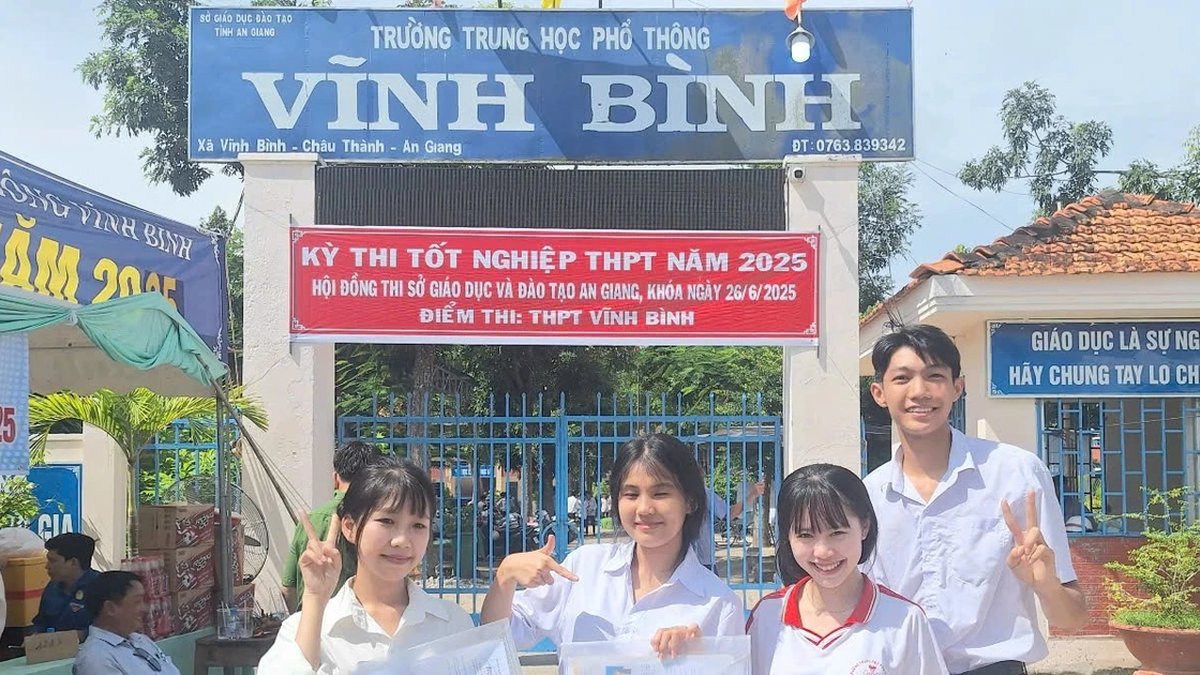








































![[Maritime News] More than 80% of global container shipping capacity is in the hands of MSC and major shipping alliances](https://vphoto.vietnam.vn/thumb/402x226/vietnam/resource/IMAGE/2025/7/16/6b4d586c984b4cbf8c5680352b9eaeb0)




















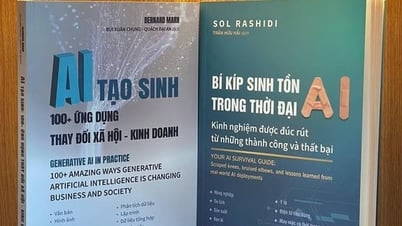
























Comment (0)